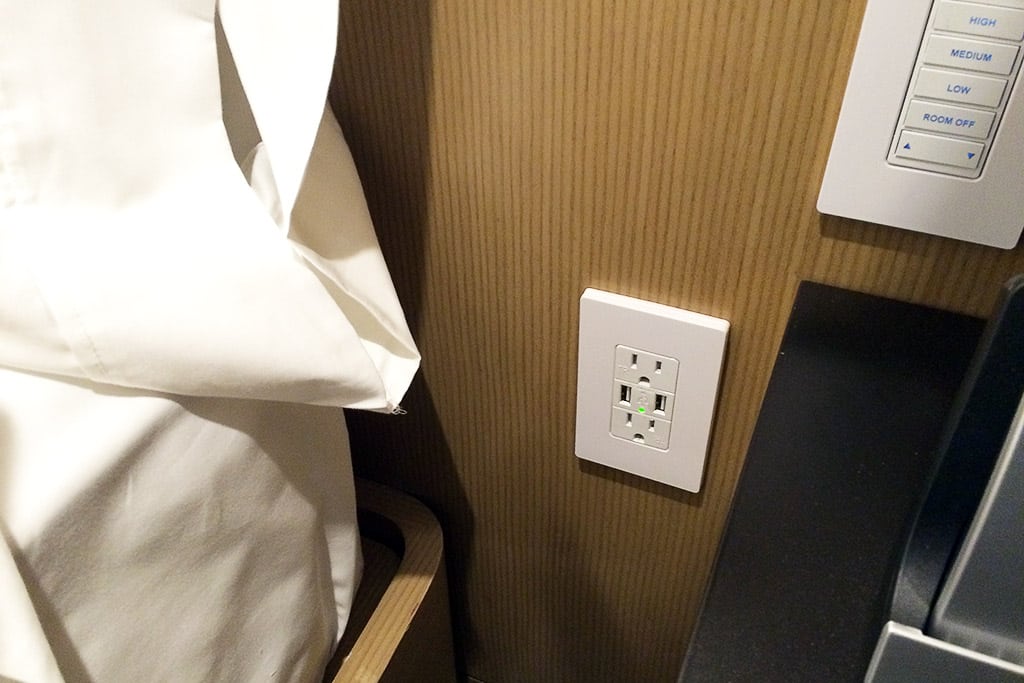Skift Take
For a look at all the marketing stories that caught our eye this week, keep reading below.
Welcome back to Skift’s digital travel marketing roundup, a weekly review of the most important digital marketing trends, marketing technology, and ad campaigns making headlines this week with travel marketers.
This week features a roundtable discussion among hotel executives on the future of in-room technology. Long-gone are the days when lots of electrical outlets and room service was sufficient for guests, today’s traveler increasingly sees their mobile device as a remote control to manage their entire stay, from check-in to check out, and hoteliers have plenty of predictions of how this will impact in-room technology and services in the near-future.
Hotel Executives Share Thoughts on the Future of In-room Technology
As more hoteliers look to position properties for more tech-savvy and mobile, travelers, one area that’s getting more attention is in-room technology, allowing travelers to do everything from replace their room key to order room service on their smartphone. According to a recent roundtable discussion with hotel executives, other in-room technology upgrades like more in-room USB ports, voice activated room controls and revamped entertainment systems are also on many hoteliers’ wish lists.
Travel, Hospitality Executives Embrace the “Internet of Things”
On a related note, a new study by Tata Consultancy, reported by eMarketer, suggests that travel, transportation and hospitality industry is ahead of the curve when it comes to implementation of Internet of Things (IoT) technology. In the case of the travel industry, such technology is being used in concert with branded mobile apps, typically paired with beacons which track and gather information from customers using mobile devices in locations like airports, hotels and transit centers. Tata’s study found that more than 70% of travel industry executives reported they already used such technology in their mobile apps, a sign that this technology is only likely to get more ubiquitous in the future.
Selling the National Parks to Younger Travelers
Despite ramping up digital marketing efforts to reach millennial travelers and better than expected visitation numbers this summer, the National Park Service (NPS) still struggles to attract younger travelers. To help connect with these younger visitors the NPS, and travel suppliers that serve the park, are focusing on offering more active adventure activities, targeting families and funding content marketing initiatives like documentary films to spur interest. Taking a social media cue from the Bureau of Land Management’s top-notch Instagram and Tumblr accounts might help too.
Starwood Launches New $100 Million Advertising Campaign for Sheraton
On September 9th Starwood launched a new, $100 million dollar multi-channel marketing campaign on behalf of its Sheraton brand. The effort, titled “Where Actions Speak Louder” focuses on upgrades to the chain’s interior design, service and product offering, and marks Sheraton’s first new advertising campaign since 2011 and its first TV commercial in more than 10 years.
San Francisco Travel Association Hails a Ride with Lyft
Hilton Hotels isn’t the only travel brand making ride-sharing partnerships this week. Both Uber and Lyft continue to ink partnership deals with hotel chains and tourism boards in an effort to boost usage among potential riders. The latest example is San Francisco’s Travel Association, which recently announced a formal partnership with Uber competitor Lyft. The Association plans to offer travelers up to $10 in Lyft ride credits while visiting the city.
Virtual Reality Marketing: Poised to Go Mainstream for Travel Brands?
A range of existing and soon-to-launch “virtual reality” products like Google’s cardboard project and the Oculus Rift are ramping up consumer excitement, and travel marketers are eager to take advantage . As Eye for Travel reports, some enterprising destination, hotel and airline marketers are already embracing the technology to grab PR headlines, get travelers talking about new products and introduce new services to consumers.
Context matters for Content Marketing
Content marketing is all the rage among travel marketers these days, but as this opinion piece claims, not enough travel executives are using it in the proper fashion. According to the article, a proper content marketing strategy needs to align with business goals, serving as a complement to other digital marketing tools like search advertising, email marketing and PR campaigns, in order to drive effective results.
The Daily Newsletter
Our daily coverage of the global travel industry. Written by editors and analysts from across Skift’s brands.
Have a confidential tip for Skift? Get in touch
Tags: content marketing, Digital Marketing
Photo credit: Smart in-room tech begins with well-placed plugs. Skift
